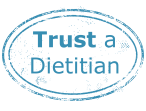Fiona offers patient-centred, individualised advice and support in nutritional rehabilitation, taking into account the client’s medical, social and cultural situation. Fiona’s advice is evidence based, impartial and practical. She supports individuals to restore regular eating patterns, achieve a healthy weight and challenge food rules and beliefs. She also educates about food and appetite, as well as education on the effects of starvation on the body.
Clients may demonstrate restrictive or chaotic eating patterns and may compensate through various behaviours such as over-exercising, restricting, purging or laxative misuse. Eating disorders can have such a huge impact on a client’s quality of life, as well as on family and friends around them. Fiona is passionate about helping clients break their dietary rules and beliefs and begin to trust food again. She works with clients to develop a realistic, balanced food plan and work towards a healthy weight (known as ‘set point’). Other work may include practice with eating out, challenging feared foods or food groups and reducing ‘checking’ behaviours such as calorie counting and weighing foods. Fiona also works with families, friends or partners to provide advice around how best to support their loved one.
Examples of the eating disorders Fiona can support with are as follows:

